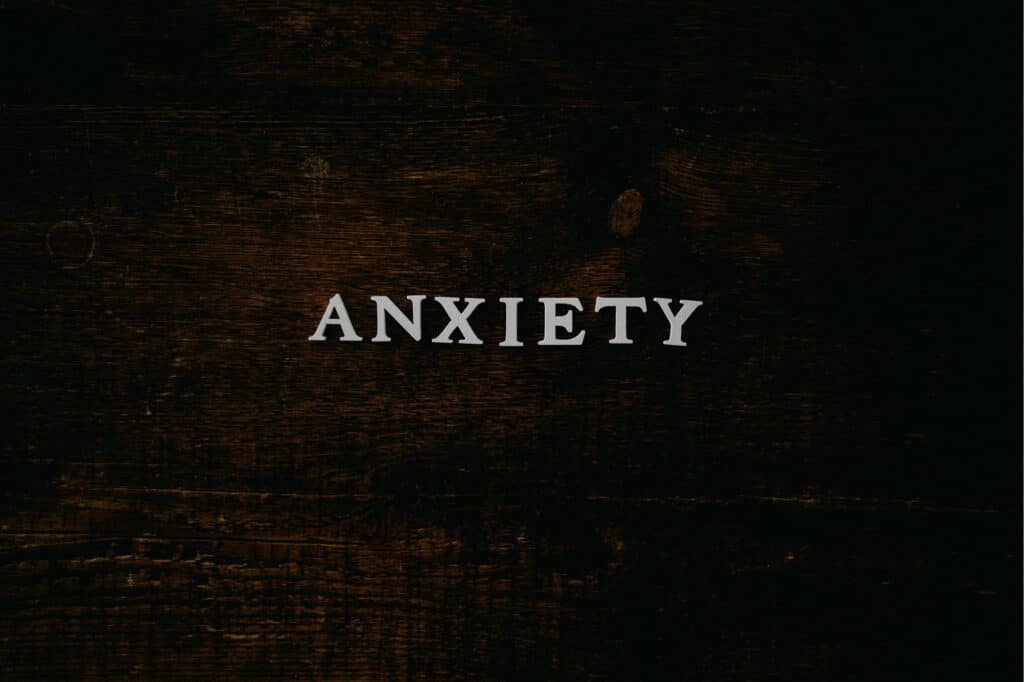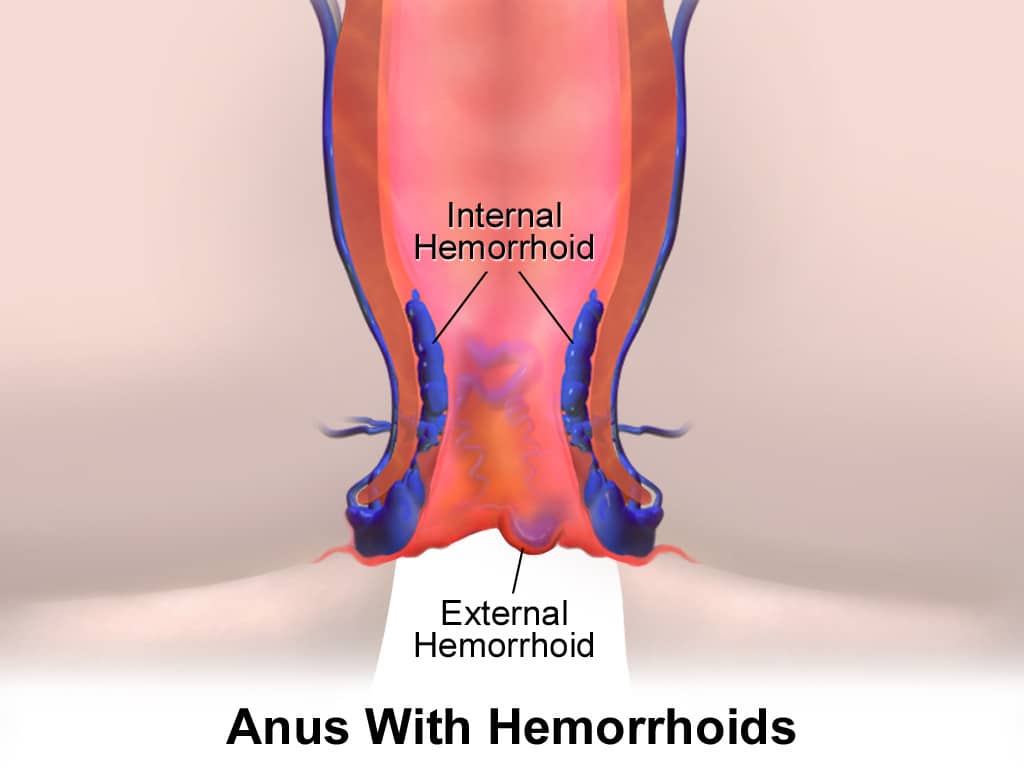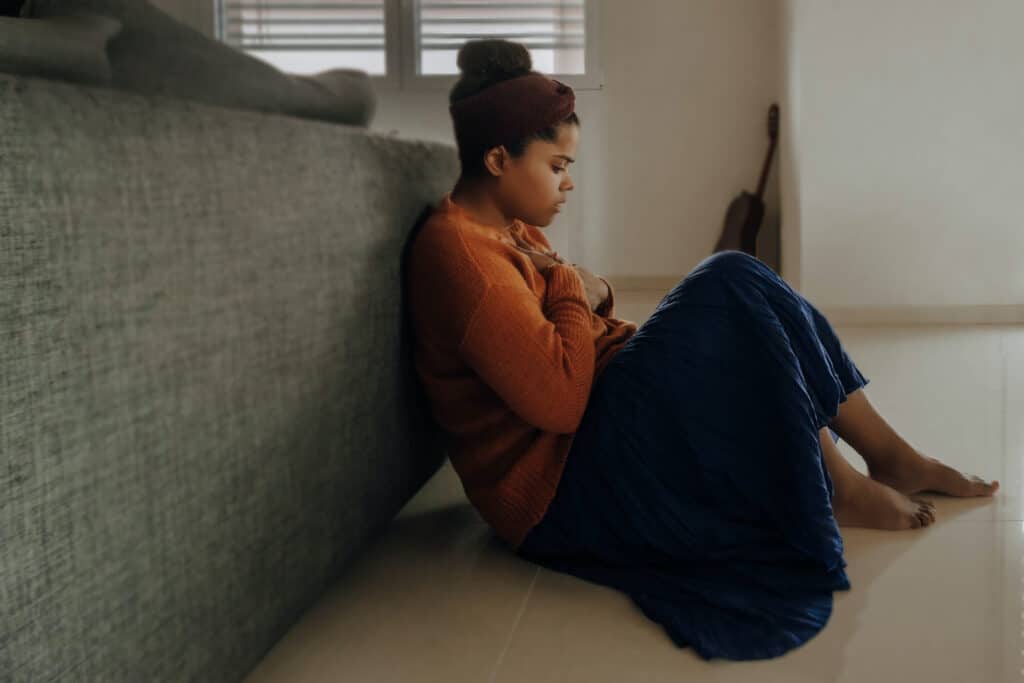Can anxiety cause hemorrhoids
Do you suffer from anxiety? Can anxiety cause hemorrhoids? If so, it’s likely that your mental health is affecting other aspects of your life. Anxiety can cause physical problems ranging from digestive issues to headaches and even hemorrhoids!

That's right – anxiety can be a contributing factor in the development of these painful and uncomfortable growths around the anus. But how exactly does this happen? In this article, we'll explore the connection between anxiety and hemorrhoids to help give sufferers some peace of mind.
Hemorrhoids are relatively common, with up to 75% of people experiencing them at least once during their lifetime.
They occur when veins around the anus become swollen or enlarged due to increased pressure. This pressure can come from straining on the toilet due to constipation, sitting for long periods of time, being overweight or obese, pregnancy or childbirth and sometimes – even stress and anxiety.
It turns out that if left untreated, chronic stress and anxiety could lead to an increased risk in developing hemorrhoids.
So, what effect does anxiety have on our bodies that might contribute to such a seemingly unrelated condition?
Our autonomic nervous system regulates many processes within our body including digestion; when anxious thoughts arise, they directly affect our ability to digest food quickly as well as causing inflammation in certain areas which may result in swelling around the rectal area leading to hemorrhoids.
Therefore it is essential for us to understand both conditions better in order to effectively manage any symptoms experienced by either one!
Anxiety And Stress as Contributing Factors
When it comes to the cause of hemorrhoids, anxiety and stress play a significant role. This is because they can lead to changes in the body's normal functioning and interfere with our bowel movements.
Stress response triggers physical reactions such as increased heart rate, constriction of blood vessels, tense muscles, and difficulty digesting food. All these responses can contribute to developing hemorrhoids or worsen existing ones.

It is important to note that mental health issues such as depression and anxiety are associated with an increased risk for developing hemorrhoids due to the effects discussed above.
Additionally, chronic stress weakens the immune system which may also increase your chances of getting them. In order to prevent further complications from arising, it is essential to understand how anxiety and stress-related factors influence this condition and take steps towards managing them accordingly.
Fortunately, there are techniques available today for dealing with anxiety and stress related conditions – both physically and mentally – that when used regularly can help reduce their severity or even prevent them altogether.
By addressing any underlying causes behind your stress levels early on, you could potentially save yourself from more severe issues down the road like recurrent hemorrhoid flare-ups. With this insight in mind, let’s now look at ways we can effectively manage our own symptoms of anxiety and stress in regard to hemorrhoids.
How To Cope with Anxiety And Stress Related To Hemorrhoids
Coping with anxiety and stress related to hemorrhoids can seem like an overwhelming task, but there are many things that you can do to alleviate the symptoms. Here are some tips for managing your anxiety and stress associated with hemorrhoids:
1. Incorporate witch hazel into your daily routine. Witch hazel is a natural astringent which helps reduce inflammation and soothe itching caused by external hemorrhoids. It also has anti-bacterial properties that help prevent infection of popped or broken skin near the anus.
2. Make lifestyle changes such as becoming more physically active and avoiding sitting in one position for too long. A sedentary lifestyle can lead to increased blood pressure in anal veins, leading to further irritation of existing hemorrhoids or development of new ones. Increasing physical activity can be done gradually over time, even if it’s just taking short walks throughout the day or doing light stretching exercises at home or work whenever possible.
3. Practice stress management techniques such as mindfulness meditation, deep breathing exercises, progressive muscle relaxation, journaling, listening to calming music and nature sounds, yoga, etc., all of which have been proven to reduce levels of cortisol (the body's main stress hormone) in the bloodstream significantly when practiced regularly.
These activities allow us to take control of our thoughts and emotions rather than letting them run rampant on their own accord – something we often forget amidst life's hectic schedules!
By implementing these steps consistently into your daily life you'll find yourself feeling much better emotionally and physically regarding any anxieties or stresses related to your condition -– giving you a newfound sense of freedom from its effects! Who is at risk of developing hemorrhoids?
Who Is At Risk Of Developing Hemorrhoids?
Anyone can experience the discomfort of hemorrhoids. But certain lifestyle or health factors may increase your risk for developing them. Knowing which factors place you at higher risk helps to protect against future flare-ups and complications.

The most common cause of hemorrhoids is straining when having a bowel movement due to constipation, chronic diarrhea, or pregnancy. This puts extra pressure on blood vessels in the pelvic area, causing them to become inflamed and swollen.
Other possible triggers include sitting in one position for long periods of time, heavy lifting, being overweight or obese, and having anal intercourse.
There are also certain medical conditions that can lead to an increased risk of getting hemorrhoids such as liver disease where there’s a decrease in circulation throughout the body; rectal cancer, Crohn's Disease or other inflammatory bowel diseases; cirrhosis; cystic fibrosis; or any condition that causes poor digestive motility.
All these conditions affect how our bodies process waste products resulting in straining during defecation and increasing pressure on the blood vessels around the anus and rectum.
Fortunately, by making small changes like eating high fiber foods to help regulate digestion and drinking plenty of fluids we can reduce some of the strain placed on our pelvic region while passing stools.
Understanding who is at risk for developing hemorrhoid symptoms allows people to take preventive measures before they develop into more serious issues down the line…
Symptoms Of Hemorrhoids
While anxiety can cause physical symptoms, it is not known to directly contribute to the development of hemorrhoids. However, the stress and tension that comes with having an anxiety disorder could potentially exacerbate any existing issues related to hemorrhoids.
When diagnosing a patient's hemorrhoidal condition, there are two main types: external and internal. External Hemorrhoids occur when swollen veins form around the anus or in the lower rectum outside of the anal area.
On the other hand, Internal Hemorrhoids will typically develop within 2-3 cm of the dentate line which divides the upper and lower parts of the rectum. Symptoms associated with both types may
include:
* Bleeding during bowel movements
* Itching or irritation in the anal area
* Painful swelling near your anus
* A hard lump near your anus that may be sensitive or painful when touched
These symptoms will vary for different individuals depending on their individual case. In some cases, individuals may experience no symptoms at all until they start to physically see them protrude from outside their body.
Therefore, if you believe you have developed an issue with your hemorrhoids, it is important to consult with a doctor as soon as possible for proper diagnosis and treatment options.
Treatment Options
When it comes to treating anxiety-related hemorrhoids, there are a few different options available. One of the most commonly used treatments is taking warm baths with Epsom salts or baking soda. Adding these ingredients to your bath can help reduce inflammation and itching associated with hemorrhoids.

Additionally, lifestyle changes such as avoiding sitting for long periods of time, eating a high-fiber diet, drinking plenty of water, and exercising regularly may also be beneficial in reducing symptoms and helping to prevent recurrence.
In more severe cases of anxiety-induced hemorrhoids, rubber band ligation may be needed. This procedure involves placing small elastic bands around the base of the internal hemorrhoid tissue to cut off its blood supply until it dies and falls off.
It's important to note that this treatment should only be done by qualified healthcare professionals and is not recommended during pregnancy or if you have certain medical conditions.
For those struggling with painful or bothersome anxiety-related hemorrhoids, making dietary and lifestyle changes are key components of successful treatment plans that can lead to lasting relief from this uncomfortable condition.
Diet And Lifestyle Changes
It's important to understand that anxiety can lead to the development of hemorrhoids. While having anxiety doesn't directly cause hemorrhoids, it can contribute to their development. This is why making some simple lifestyle changes may help alleviate symptoms and prevent future flare-ups.
One key factor when dealing with both anxiety and hemorrhoids is diet. Eating a healthy balanced diet full of fresh fruits, vegetables, lean proteins, whole grains and low fat dairy products can be beneficial for both conditions.
In addition, increasing your intake of fiber by eating high fiber foods like legumes, nuts, seeds and oats can help to reduce constipation which in turn helps to reduce the pressure on rectal veins caused by straining during bowel movements.
Another helpful tool for managing both anxiety and hemorrhoids is warm water therapy. Sitting in a warm bath or sitz bath several times daily has been known to relieve inflammation due to hemorrhoids as well as reducing stress levels associated with anxiety. The following are three actions you can take right away:
1. Eat more fresh fruits and vegetables every day
2. Incorporate high fiber foods into your meals
3. Take time out of your day for relaxation techniques such as taking a warm bath or sitz bath
Making these changes will not only improve the symptoms of both anxiety and hemorrhoid flare-ups but they may also help you feel better overall physically and mentally. Taking an active role in improving your physical health could have positive implications on your mental well being too!

Thoughts….
It is clear that when faced with the question “can anxiety cause hemorrhoids”, then yes both anxiety and stress can be a contributing factor to the development of hemorrhoids. Therefore, if you are experiencing anxiety or stress, it’s important to manage your mental health for overall health and wellness.
If you think you may have hemorrhoids, it’s important to consult with your doctor about the best treatment options for you. Individually, there are various treatments available such as over-the-counter medications, dietary changes or even surgery in more severe cases. Remember to also make sure to incorporate lifestyle changes like exercising and eating a balanced diet into your routine as well.
Overall, while anxiety can lead to an increased risk of developing hemorrhoids, they can still be managed effectively with proper medical care and lifestyle adjustments. If you experience any symptoms related to hemorrhoids, seek help from your healthcare provider right away so that you can get back to living life comfortably again!
FAQs
What are the top 5 foods to avoid with hemorrhoids?
To prevent worsening hemorrhoid symptoms, it's important to avoid foods that can irritate the digestive system and lead to constipation or diarrhea. Some of the top foods to avoid include spicy foods, dairy products, caffeine, processed foods, and alcohol. Drinking plenty of water and consuming fiber-rich foods can help maintain healthy digestion and prevent hemorrhoid flare-ups.
Can emotional stress, or can anxiety cause hemorrhoids?
Yes, emotional stress can contribute to the development of hemorrhoids by disrupting the digestive system and increasing blood pressure and stress hormones. It's important to manage stress levels effectively through relaxation techniques, exercise, and seeking support from loved ones or a mental health professional.
Can you get hemorrhoids from pooping too much?
Chronic constipation or diarrhea can contribute to the development of hemorrhoids over time, particularly if you strain excessively during bowel movements. To prevent hemorrhoids from pooping too much, it's important to maintain a healthy digestive tract by consuming fiber-rich foods, drinking enough water, and seeking medical treatment if necessary.
Can lying in bed cause hemorrhoids?
Lying in bed for an extended period of time can increase the risk of hemorrhoids by reducing blood flow and putting pressure on the anal canal and sphincter muscle. To prevent hemorrhoids from lying in bed, it's important to move around regularly, stay hydrated, and avoid lifting heavy objects or sitting for long periods of time.
Does walking make hemorrhoids worse?
While walking can help promote healthy blood flow and reduce the risk of constipation, excessive or strenuous exercise can increase pressure on the anal canal and worsen hemorrhoid pain. To prevent hemorrhoids from walking, it's important to engage in moderate exercise and avoid high-impact activities if you have existing hemorrhoid symptoms.


